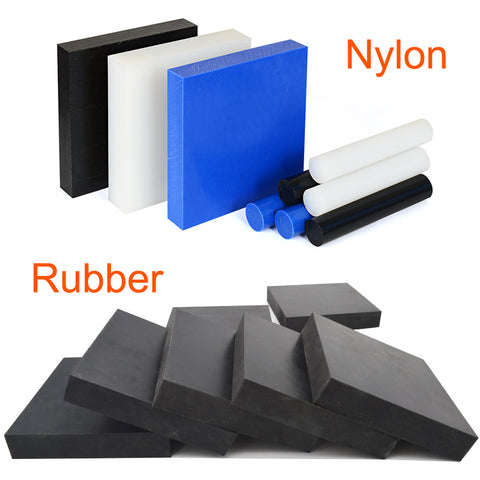Is Nylon a Plastic or a Type of Rubber? Understanding the Differences
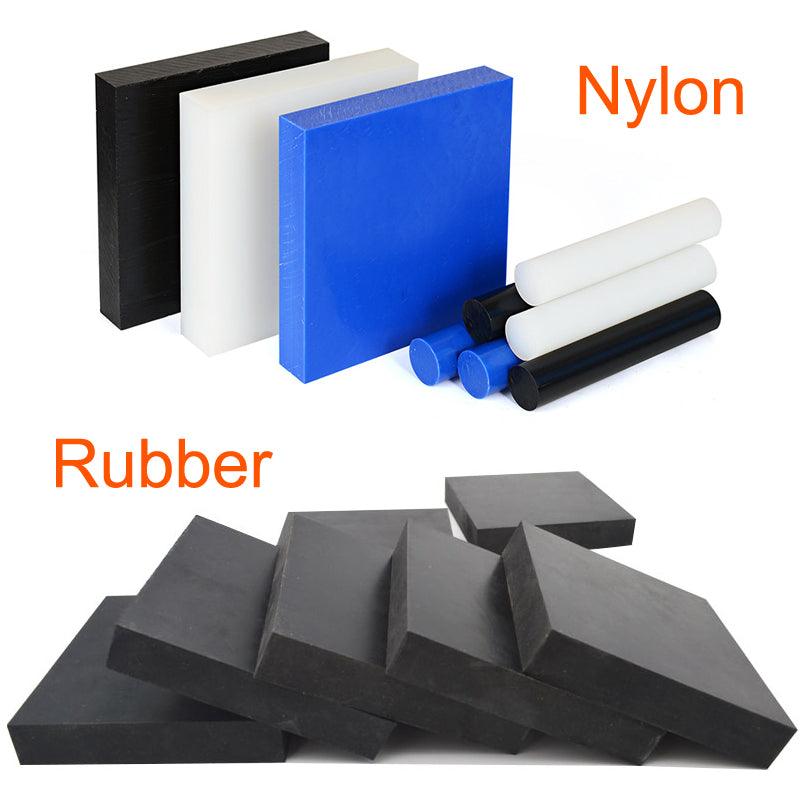
Nylon is a familiar material to many people, but whether it is a plastic or a rubber remains a matter of debate. Because of its excellent properties and wide range of applications, nylon is a common material in the custom plastics processing industry. In this article, we will address this issue and provide you with a better understanding of nylon classification by describing its properties and definitions, as well as comparing it to other materials. In addition, we will also delve into the importance of nylon in custom manufacturing to help you understand how to choose the right material for your business needs. We hope that by reading this article, you will gain more knowledge about nylon materials and improve your understanding of their applications and principles.
🟦 Explore Durable Nylon Sheets and Rods for Industrial UseChoose from cast or extruded nylon materials ideal for gears, rollers, bushings, and other demanding mechanical applications. ✅ High Wear Resistance 👇 Click below to find the right nylon stock material for your project. 🎉🎉🎉Limited Time Offer Use code: QR4GNY08SHVR at checkout and enjoy a special discount on your entire order! 👉 Nylon plastic |
Definition and classification of nylon materials
Nylon is a high-performance plastic material made from a synthetic polymer. It was first discovered in the 1930s and first produced commercially in the 1940s. Its name comes from the English word "polyamide", meaning "polyamide", of which "nylon" was a popular trademark at the time.
Nylon is used in a wide range of industrial and commercial applications and is highly regarded for its outstanding performance characteristics. Its main characteristics include high abrasion resistance, high strength, low coefficient of friction, and a long service life that can withstand high temperatures and chemical corrosion properties.
Depending on their structure and properties, nylon materials can be classified into many different types. The following are a few common classifications of nylon:

Polymer 6 and Polymer 66: These are the two most common nylon materials. They have a linear macromolecular structure, are durable and stretch well.
Polyimides (Aramids): These materials are stiffer and stronger than other nylon materials and are widely used for bulletproof vests, seat belts, and advanced composites.
Flame-retardant Nylon: This material has chemicals added to improve its flame retardancy and is often used in the production of electronic equipment and household appliances that require good fire resistance.
Engineering Plastics Nylon (Engineering Plastics Nylon): These nylon materials can have a variety of customized improvements depending on the application scenario, such as increased heat resistance or increased toughness. It is the representative of some advanced independent innovation technology.
In short, due to the wide range and diversity of nylon materials, understanding its classification and characteristics is critical to making the right business decisions. With an in-depth analysis and understanding of nylon classification, you can better determine the type of material that best suits your business needs.
Properties of Nylon Materials
Nylon is a polymer that consists of repeating units of different chemical elements. The chemical structure of nylon is composed of long chain molecules and contains amino or other functional groups on its side chains. This makes nylon suitable for a wide range of chemical reactions and industrial applications. The following are the main properties of nylon materials:
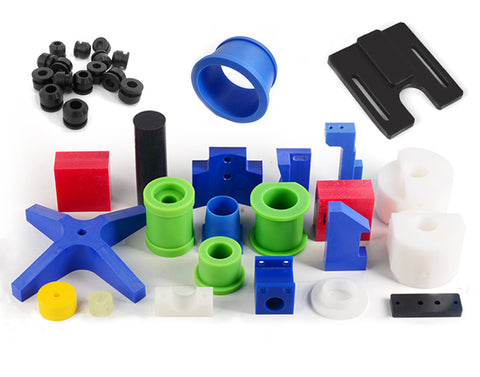
Mechanical properties: Nylon has excellent strength and wear resistance, has high torsional strength and stiffness, and is very flexible. These properties make nylon popular in the manufacture of a wide variety of mechanical parts and sports equipment.
Physical Properties: Nylon is a relatively durable material, which means it can maintain its mechanical and physical properties under a wide range of conditions. In addition, nylon has a low coefficient of friction, making it extremely suitable for applications where reduced wear is required.
Electrical properties: Nylon can be used as a good electrical insulator, as well as conductive or antistatic treatment, and is widely used in the manufacture of wires and cables.
Thermal properties: nylon materials can withstand high temperatures and chemical corrosion, while being able to maintain their original properties. Nylon is a material with excellent thermal stability.
Taken together, nylon materials are a great asset and are used in a wide range of industries. By understanding its features and benefits, you can better determine if it is suitable for your specific needs, or how to adapt and improve it as needed to meet your custom production needs.

Nylon versus other materials
As an important industrial material, nylon has many advantages and disadvantages over traditional materials such as steel, aluminum, and glass. At the same time, nylon also has many differences compared to other plastic and rubber materials. The following is a detailed discussion of the characteristics of each type of material for comparison:
Comparing traditional materials
- Steel: Compared to steel, nylon materials are lighter, but at the cost of being slightly less strong than steel.
- Aluminum: Again, nylon materials are usually lighter than aluminum, but may suffer from deformation and loss of hardness under high temperature conditions.
- Glass: Nylon is harder and more reliable than glass, and can withstand higher pressure and shear stresses.
- Compare other plastic and rubber materials
- ABS plastic: compared to nylon materials, ABS plastic toughness is higher, but in terms of hardness and strength performance is slightly inferior.
- PVC: The biggest advantage of PVC is its low price, but it performs poorly in terms of strength and temperature stability.
- Rubber: Rubber materials are softer and more suitable for vibration damping and anti-skid than nylon. However, the high abrasion resistance is poor compared to nylon.
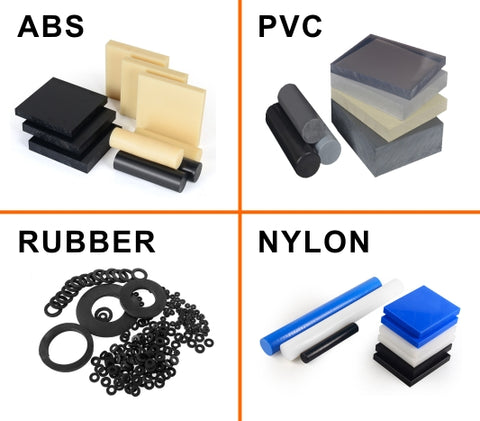
Overall, the advantages of nylon materials include their excellent performance in terms of hardness and strength, high abrasion resistance and diverse application scenarios. However, in some extreme environments, other classes of materials may perform better, so the actual needs need to be weighed and evaluated when choosing an industrial material.
Understanding the characteristics and applications of nylon materials to help customize plastics processing and industrial field development
As a widely used industrial material, nylon has unique chemical properties and mechanical properties. Nylon is synthesized from polyamides, which often contain amino or other functional groups, making it suitable for a wide range of chemical reactions and industrial applications. It is lighter than other traditional materials such as steel and aluminum, and excels in strength, hardness, wear resistance and thermal stability.
Nylon is also different from other plastic and rubber materials. Nylon is significantly harder and stronger than ABS plastic and PVC, and is not brittle due to its high hardness; rubber may be more suitable for some applications in terms of flexibility and vibration damping properties.
In summary, the characteristics of nylon materials include excellent mechanical, physical, electrical and thermal properties, which have led to its use in a wide range of custom plastic processing and other industrial applications. Understanding the definition and classification of nylon materials, as well as the differences between nylon and other materials, can help you determine the type of material best suited to your business needs and take the appropriate improvements and applications to achieve the best production results.
🛠️ Need Custom Nylon Components? We Machine to Your SpecsFrom CNC turning and milling to laser cutting and drilling, BeePlastic provides high-precision processing of nylon parts for all industries. 📩 Upload your drawings and get a fast, detailed quote directly from our engineers. 🔷 Services Include:
|
Come on! Nylon Fans!
If you are interested in this article and would like more information on how to use nylon materials for custom production, please feel free to contact our website. We can provide you with technical support and professional advice tailored to your needs to help you achieve the best results in nylon processing.
If you need further information or to purchase nylon materials, please contact us by email. Our professional team will promptly respond to your emails and assist you in selecting quality and reliable nylon materials to meet your various application needs.
Finally, thank you for reading this article and visiting other related articles on our website. We will continue to publish the latest industry news and high quality technical articles in order to better serve our users and contribute to the advancement of the plastics processing field.
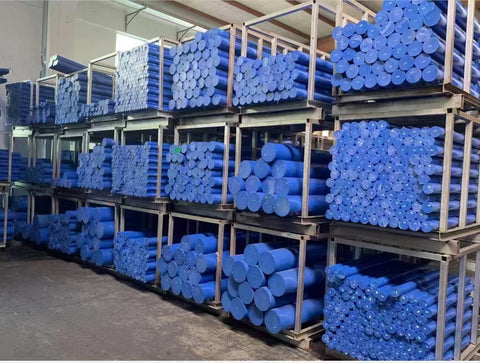
-
Posted in
#Aramids, #CNC machining customization, #Engineering Plastics Nylon, #Flame-retardant Nylon, #nylon and rubber, #Nylon bushing, #Nylon gear, #Nylon plastic, #Nylon processing type, #Nylon products, #Nylon wheels, #plastic, #POM plastic, #PVC sheet, Custom Nylon Parts, difference between plastic and rubber, engineering plastics, flexible plastics, is nylon a plastic, nylon material properties, nylon sheet uses, nylon vs rubber, plastic identification guide, rubber alternatives, synthetic materials


